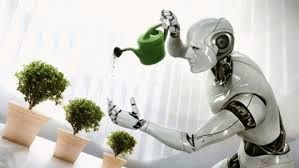
Who’s Working Today Will Not Be The Same Tomorrow, If Tech Improves As Planned
The US Bureau of Labor Statistics Report today told some of the story. Nonfarm workers increased 113,000 in January 2014, as compared with an average monthly increase throughout 2013 of 194,000. The unemployment rate changed little at 6.6 percent, based on 10.2 M unemployed workers who actively seek full time work. Long-term unemployed decreased 232,000 in January 2014, and they account for about 35.8% of those unemployed. (http://www.bls.gov/news.release/empsit.nr0.htm)
If high tech company plans work out, fewer unskilled workers will be employed in the future. The precise impact of new technology cannot be accurately forecast. Nonetheless, Google says it has reached final development stages for autonomous computer operated vehicles. (http://www.technologyreview.com/news/520746/data-shows-googles-robot-cars-are-smoother-safer-drivers-than-you-or-i/) IBM artificial intelligence scientists are perfecting Watson, a computer that learns. (http://www-03.ibm.com/systems/power/solutions/watson/) Amazon has already automated several of its warehouses and soon it plans to transport parcels by airborne drones. (http://online.wsj.com/news/articles/SB10001424052702304724404577291903244796214) (http://techcrunch.com/2013/12/01/amazon-is-experimenting-with-autonomous-flying-delivery-drones/)
While new goods and services will be offered to many consumers worldwide due to new technologies, new labor numbers will reflect fewer jobs among unskilled workers. High tech will replace those workers in growing numbers. (http://www.voanews.com/content/technology-impact-on-people-lives-mixed/1846050.html) In the words of the author of The Second Machine Age, Andrew McAfee,“Technology tends to favor some kinds of winners and they are pulling ahead and leaving a lot of people behind. So we see inequality in income, inequality in wealth, inequality in opportunity, in mobility, and these are very serious challenges that we have to confront,”
When you see high tech replacing local jobs, we invite you to comment on this blog. What do you think? Is the short term loss of work worth the longer term improvements? Is automation unstoppable?
And as for unemployed workers who want to work, what stories have you witnessed? We invite you to add those stories online here.
The staff at http://HamiltonFinanceServices.com invites your participation in this worldwide conversation.


